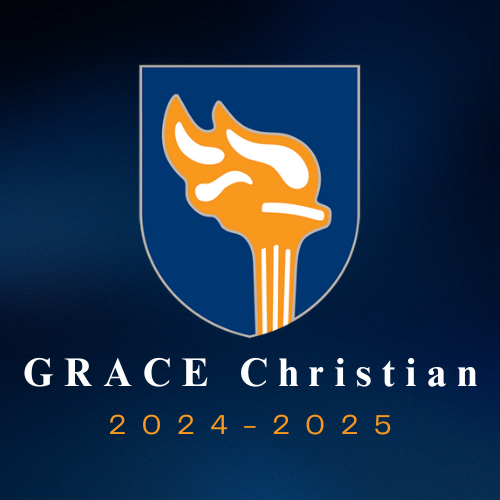Policy
Although GRACE Christian School is not covered under the public accommodations provisions of the Americans with Disabilities Act (ADA), or a place of public accommodation otherwise, GRACE recognizes the importance of Trained Service Dogs to provide services to persons with disabilities. Skilled companion animals, therapy dogs, facility dogs, police dogs, search and rescue dogs, family or companion pets are not classified as Trained Service Dogs. It is our policy to establish a Trained Service Dog Team under the authority of the Head of School upon receipt of a Trained Service Dog Request Form. This team reviews the student’s cumulative records, academic and/or medical support plan, as well as the request form and any required supporting documents, then collectively decides whether to grant or deny approval of the Trained Service Dog during the school day or related events. If approval is granted, the team will also create a specific written agreement that outlines the accommodations, including details about how the Trained Service Dog will be handled and cared for on a daily basis. The campus principal and at least one additional member of the team, will then meet with the parents making the request to discuss the details of the plan. This team will continue to communicate with and advise the family regarding the Trained Service Dog as long as the dog is approved to be on campus and shall make any and all decisions regarding the applicability and adherence to the components of this policy.
This team will continue to communicate with and advise the family regarding the Trained Service Dog as long as the dog is approved to be on campus. The team shall make any and all decisions regarding the applicability and adherence to the components of this policy.
Procedural Manual
Purpose
Trained Service Dogs provide services to a person with disabilities including: hearing dogs, guide dogs, seizure alert dogs, diabetes alert dogs, mobility dogs, seizure alert dogs, and autism dogs.
Scope
Parents of a student with a disability and appropriate accommodation must seek approval for a Trained Service Dog to accompany their student while at school through the Trained Service Dog Request Form. Any animal or trained service dog is personal property and cannot be brought onto school property without prior approval.
A Trained Service Dog must not pose a direct threat to the health or safety of any students, school personnel or other persons. Unnecessary barking, growling, whining, or aggression will not be tolerated. The Trained Service Dog may not interfere with the educational program of any student, create an undue hardship on the educational work environment or the safety of others. The Trained Service Dog must be clean, well-groomed and have no offensive odor. Urination or defecation is not acceptable, except in the agreed-upon location(s). The Trained Service Dog may not solicit attention or food, take food or other items, or otherwise cause any distraction for students or school personnel.
School Administration reserves the right to deny or revoke a request for access of a Trained Service Dog to the facility. The school does not assume responsibility for the care or conduct of a Trained Service Dog. The student and family are liable for any and all damages to facilities, equipment, or other persons caused by the dog.
There may be a probationary period designated for the introduction of the Trained Service Dog. During this time (duration to be designated by the Trained Service Dog Team), the school may require the experienced trainer to assist the student and dog at school and train any other individuals who need to be trained to work with or around the dog. Any cost of such visit will not be the liability of the school.
At any time, the campus principal may change the program and the schedule if the Trained Service Dog places an undue hardship on the educational or work environment or if any of the above regulations are not met.
Responsibilities
Parents and the student of a Trained Service Dog must ensure that the dog:
- Is clean, well-groomed and does not have an offensive odor.
- Does not urinate or defecate in inappropriate locations.
- Does not solicit attention or distract any students or school personnel.
- Does not vocalize unnecessarily, such as barking, growling, or whining.
- Shows no aggression.
- Does not solicit or take food or other items from students or school personnel.
- Does not interfere with the educational program of any student.
School administration, teachers, and personnel may wish to consider providing the following:
- A rest place for the service animal.
- A designated area where the dog may relieve itself.
- Emergency plans for fire drills, evacuation, and lockdowns.
- A class and/or schoolwide program to educate others about how to behave appropriately around the service animal.
Procedures
Parents of a student with a disability and a need for appropriate accommodation seeking approval for a Trained Service Dog to accompany their student at GRACE Christian School must request approval for the Trained Service Dog to be present in the school or at school-sponsored events. Parents should complete the Trained Service Dog Request Form and attach appropriate documentation (listed on the request form). Documentation will be required to identify that the service animal is in good health, free from parasites and has received all recommended vaccinations. The Trained Service Dog Request and appropriate documentation must be submitted annually to the campus principal and approval received prior to the Trained Service Dog being allowed on the campus and in the buildings.



